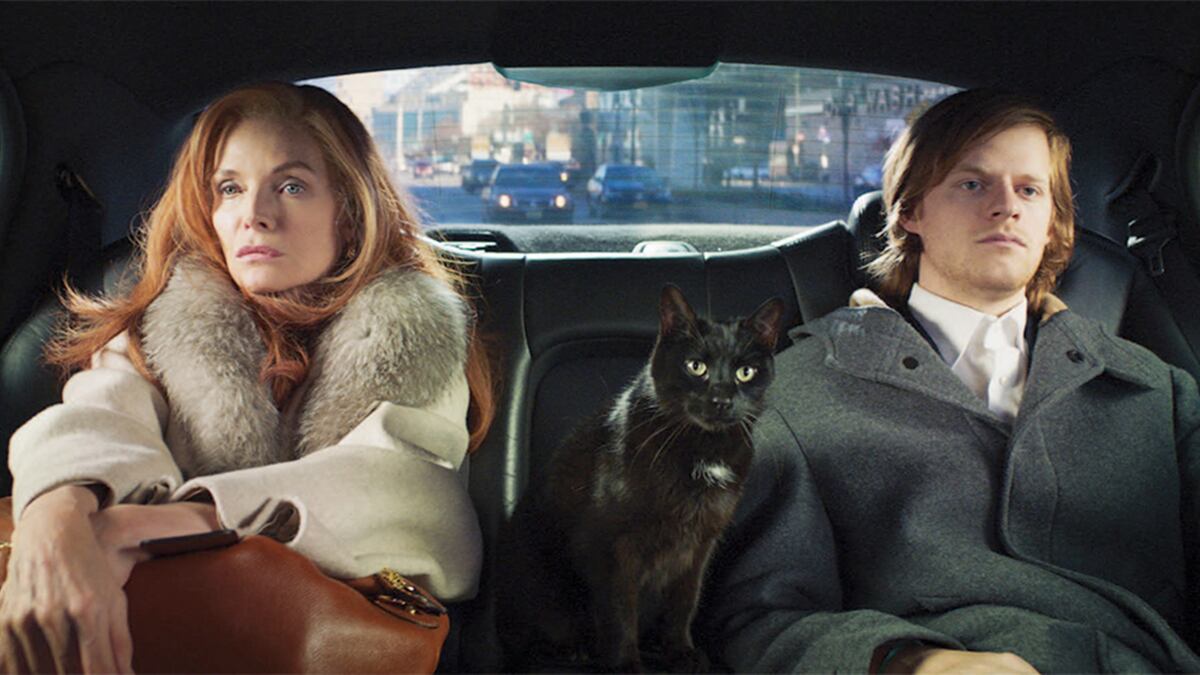If three makes a trend, Patrick deWitt's writing is movie catnip.
Whether bickering bandits or moneyed layabouts, characters from the Portland-based and Man Booker Prize-shortlisted deWitt have leapt off his pages and onto screens for 10 years now. They've attracted actors like John C. Reilly for Terri (2011), Joaquin Phoenix and Jake Gyllenhaal for The Sisters Brothers (2018) and now, Michelle Pfeiffer and Lucas Hedges for the movie adaptation of deWitt's 2018 novel, French Exit (out April 2 from Sony Pictures Classics).
Dubbed a "tragedy of manners" by its subtitle, French Exit follows a codependent mother and adult son, wealthy once but hard up now. Like a more cultured version of Arrested Development's Lucille and Buster Bluth, Frances and Malcolm Price have little left but each other's company and their considerable wit. From a borrowed Paris apartment, the Prices make their last stand, pouring their remaining funds into comically absurd yet personally resonant goose chases.
WW spoke with deWitt about adapting his novel for director Azazel Jacobs (Terri, The Lovers), pitching Michelle Pfeiffer, and how the pandemic impacted his writing.
WW: What was your reaction to Michelle Pfeiffer coming on board to play Frances?
Patrick deWitt: Aza [Jacobs] and I met with Michelle at her offices in Los Angeles. She hadn't agreed to take part in the film but had read the script and wanted to discuss it. I'm somewhat of a homebody, and I remember thinking that the reality of the task (going to visit Michelle Pfeiffer to try to convince her to be in our movie) was a bit of a stretch in terms of what I'm capable of socially. But she was great, and Aza and I had a sense she was seriously considering the part. I bought two pairs of pajamas just after the meeting to celebrate my not screwing it up.
With lines like "Did you drink to the brink of sound reasoning?" do you think Frances Price views conversation as a sport?
I think she, like a lot of my characters, enjoys the medium of language more than the normal amount. I keep writing this type of character because I enjoy the medium of language more than the normal amount, and making up lines like the one you quoted is my idea of fun.
Lucas Hedges' Malcolm struck me as younger and warmer than the book character. Did Malcolm evolve in the screenplay?
I don't think there's a way to bring a literary character to screen in the one-to-one sense, and I don't know if that should even be an aim. But there is the question of, "How far back can you take it before the original character is disappeared?" Lucas is in his early 20s, a full 10 years younger than the original Malcolm. This changes the character significantly, but Lucas was thorough and careful in considering the source material, and so the character of Malcolm, for me, is represented and intact.
You've said that French Exit is a book that "wants to be a film." What does that mean?
I think I meant I wanted it to be a film. Like when a parent says, "My child is going to be a doctor." I probably just meant that the book is chatty and gossipy and there are a couple decent visuals in there.
When did you realize waiters would be such constant and sometimes volatile figures in French Exit?
I never did realize it, at least not until you pointed it out. Once a reader approached me and told me, "I want you to know that I know what you're doing—with water." I asked what he meant, and he named several scenes from different books where water played a key role. I appreciated the sentiment, and that he'd taken the time to think it out, but I didn't know what he was talking about.
The pandemic year seems to have impacted writers' artistic lives so differently. How's it been for you, creatively speaking?
The last year was the same as the years before, only more so. The lack of typical distractions allowed me to conquer the agonizer part of my new book in half a year. This would have been a year's worth of work under normal circumstances, and it's nice to have saved some time, but I fear I've done lasting damage to my eyeballs, which are permanently bloodshot and never not burning.
SEE IT: French Exit is scheduled to open Friday, April 2, at Century 16 Cedar Hills, Century 16 Eastport, and Liberty. Check listings for updates.

